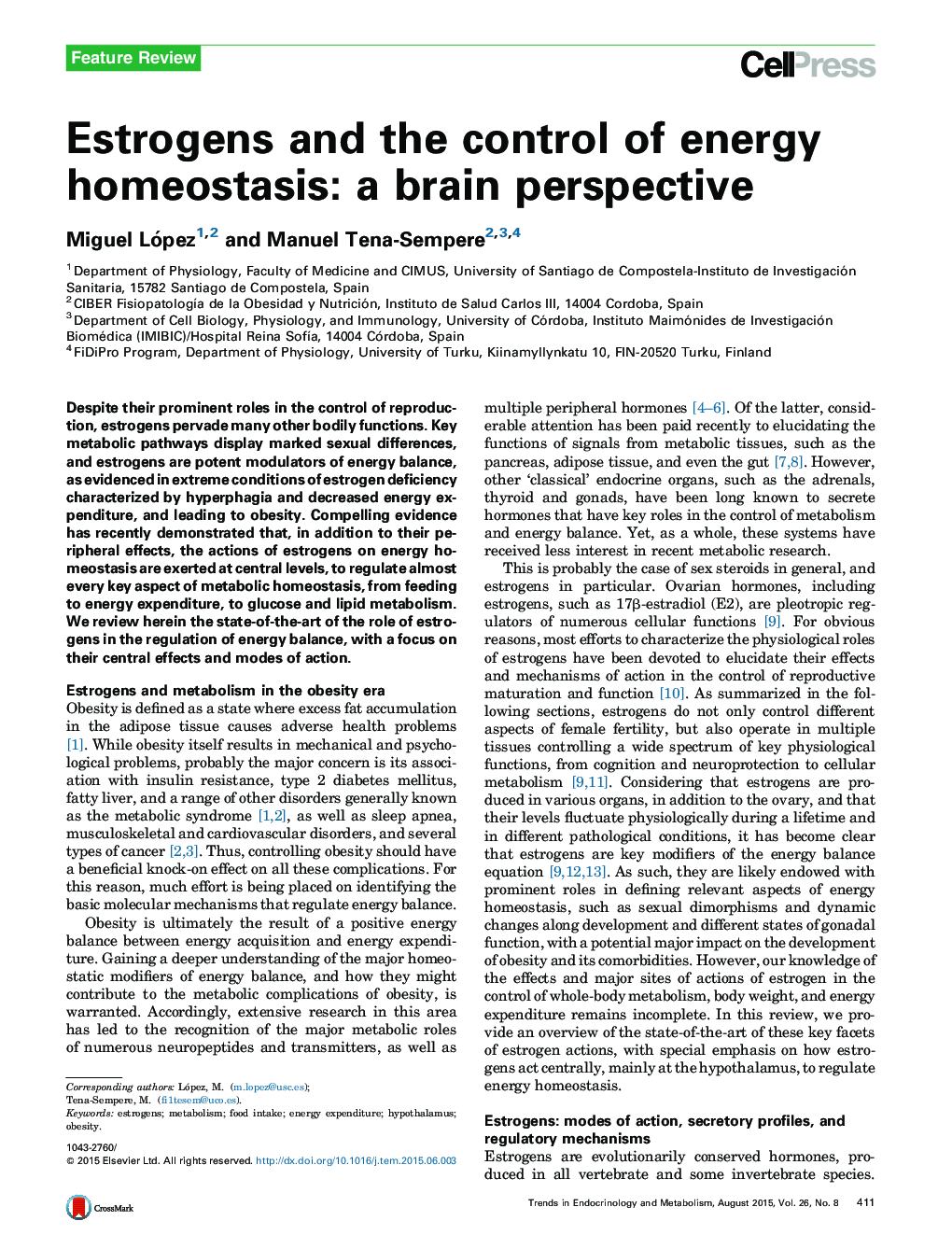| Article ID | Journal | Published Year | Pages | File Type |
|---|---|---|---|---|
| 2810142 | Trends in Endocrinology & Metabolism | 2015 | 11 Pages |
•Estrogens are pleiotropic regulators affecting not only reproduction but also metabolism.•Estrogen deprivation induces hyperphagia, low metabolic activity, and obesity.•Estrogen actions are conducted via genomic and nongenomic mechanisms, including ERα.•Estrogens act in the brain to regulate all aspects of body energy homeostasis and metabolism.•Estrogen actions in the ARC regulate food intake and in the VMH energy expenditure.
Despite their prominent roles in the control of reproduction, estrogens pervade many other bodily functions. Key metabolic pathways display marked sexual differences, and estrogens are potent modulators of energy balance, as evidenced in extreme conditions of estrogen deficiency characterized by hyperphagia and decreased energy expenditure, and leading to obesity. Compelling evidence has recently demonstrated that, in addition to their peripheral effects, the actions of estrogens on energy homeostasis are exerted at central levels, to regulate almost every key aspect of metabolic homeostasis, from feeding to energy expenditure, to glucose and lipid metabolism. We review herein the state-of-the-art of the role of estrogens in the regulation of energy balance, with a focus on their central effects and modes of action.
